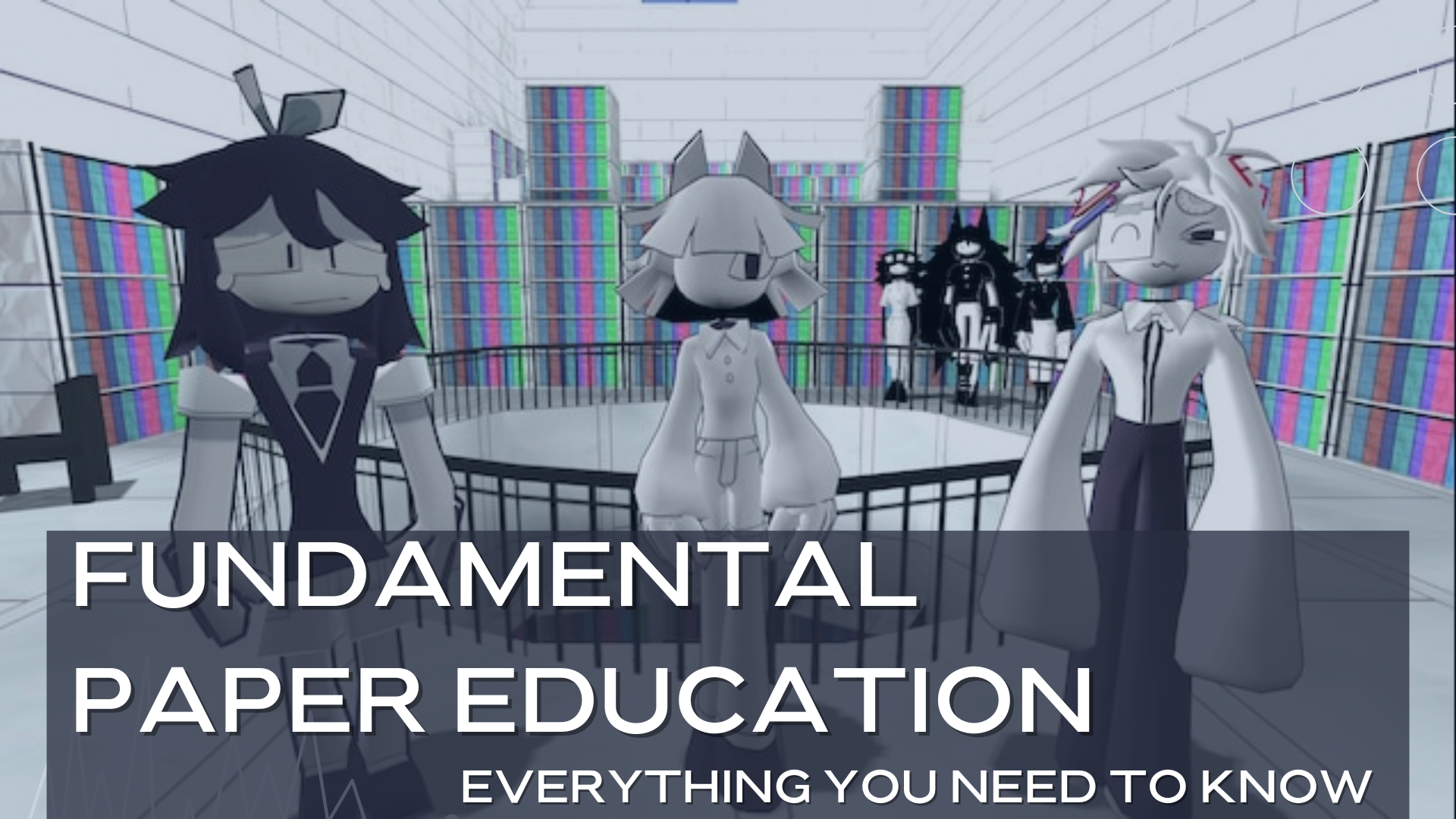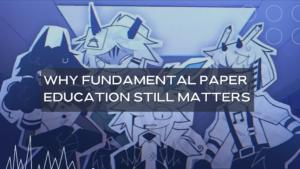In today’s fast-evolving educational landscape, understanding key concepts and terminologies is crucial for educators, students, and parents alike. One such term that has garnered significant attention is fundamental paper education. This blog post dives deep into this topic, answering some of the most frequently asked questions while providing insights into its importance and relevance.
What is Fundamental Paper Education?
Fundamental paper education refers to a foundational approach to learning that emphasizes the use of traditional paper-based resources for academic development. This method prioritizes core skills such as reading, writing, and problem-solving, often using textbooks, worksheets, and other printed materials as primary tools of instruction.
While digital tools and e-learning platforms have gained popularity, fundamental paper education holds its own importance in fostering critical thinking and engagement. It often serves as the bedrock of education, helping students develop:
- Strong literacy skills: Reading from paper-based resources is shown to improve comprehension and retention.
- Focus and discipline: Paper-based learning minimizes distractions compared to digital devices.
- Practical writing skills: Handwriting exercises enhance motor skills and cognitive development.
This approach is especially valuable in early education, where hands-on activities like writing, coloring, and solving paper-based puzzles play a pivotal role in shaping young minds.
![Fundamental Paper Education [Baldi's Basics] [Mods]](https://images.gamebanana.com/img/ss/mods/66dc9c2ab0940.jpg)
Where Can I Watch Fundamental Paper Education?
If you’re interested in learning more about fundamental paper education, there are several resources and platforms that showcase its implementation. Although it’s a concept rooted in physical learning tools, you can explore related content through the following avenues:
- Educational Documentaries:
- Platforms like YouTube, Netflix, and educational streaming services often feature documentaries on traditional teaching methods. Searching for “fundamental education techniques” or “paper-based learning systems” can yield relevant results.
- Online Workshops and Webinars:
- Many educators host online sessions discussing the benefits of paper-based learning in modern classrooms. Websites like Coursera, Udemy, and educational blogs frequently advertise such events.
- Social Media Channels:
- Follow educators, schools, and learning organizations on platforms like Instagram, Facebook, and LinkedIn. They often post videos, case studies, and insights about traditional and fundamental teaching methods.
- Schools and Educational Institutions:
- Visiting local schools or community centers can provide firsthand experiences of how fundamental paper education is implemented. Many institutions host open-house events where parents and educators can observe classes in action.
- Public Libraries:
- Libraries often serve as hubs for educational resources. Some host recorded workshops, video series, or live sessions that highlight the importance of paper-based education.
While “watching” fundamental paper education might seem unconventional, these resources can provide valuable insights into its methodology and application.
How Old is ZIP Fundamental Paper Education?
ZIP Fundamental Paper Education is a specialized program designed to blend traditional paper-based learning with modern pedagogical techniques. The exact age of the program depends on its inception, which varies by region or institution.
ZIP, in this context, could refer to:
- A specific educational curriculum developed by an institution.
- A brand or organization promoting paper-based learning tools.
Typically, educational programs under the ZIP banner trace back several decades, especially if they’re rooted in traditional teaching practices. However, the integration of newer techniques, such as incorporating creative design into worksheets or aligning materials with contemporary syllabi, might be more recent.
To determine the exact age or history of ZIP Fundamental Paper Education, consider these steps:
- Research the Institution:
- Visit the official website or social media profiles of the program’s creators.
- Contact Educators:
- Reach out to teachers or administrators involved in implementing the program. They can offer detailed insights into its history and evolution.
- Explore Archives:
- Educational journals or archived articles may provide historical context for programs like ZIP Fundamental Paper Education.
Understanding the age and legacy of such programs often highlights their credibility and the impact they’ve had on learners over time.
Who is the Principal in Fundamental Paper Education?
Identifying the “principal” in fundamental paper education involves exploring its pioneers or key figures who advocate for paper-based learning methods. While there might not be a single “principal” globally recognized for this educational approach, several individuals and organizations have played a pivotal role in its promotion and development.
Key Figures in Paper-Based Education:
- Maria Montessori:
- Known for the Montessori Method, she emphasized hands-on learning, including the use of paper-based tools like workbooks and flashcards to foster independent learning in children.
- John Dewey:
- A prominent advocate of experiential education, Dewey believed in the importance of tangible learning experiences, which align closely with fundamental paper education principles.
- Modern Educators:
- Teachers and curriculum designers who continue to champion the use of paper-based learning in classrooms around the world.
Role of Institutional Principals:
In schools or organizations implementing fundamental paper education, the principal’s role is crucial in:
- Establishing a curriculum that incorporates traditional paper-based learning alongside digital methods.
- Supporting teachers with training and resources to execute this approach effectively.
- Advocating for the benefits of paper-based education to parents, students, and policymakers.
If you’re looking for a specific name or figure associated with a program like ZIP Fundamental Paper Education, consider reaching out to:
- The institution’s administration: They can provide information about key personnel.
- Educational forums and communities: These platforms often discuss notable individuals and their contributions.
Why Fundamental Paper Education Still Matters
In an era dominated by digital tools, why should we still prioritize fundamental paper education? Here are some compelling reasons:
- Enhanced Memory Retention:
- Studies show that students who read from printed materials retain information better than those using screens.
- Reduced Eye Strain:
- Paper-based learning minimizes the risks of digital eye strain caused by prolonged screen time.
- Tactile Learning Experience:
- Writing by hand activates different parts of the brain, aiding in cognitive development and creativity.
- Focus and Discipline:
- Without the distractions of notifications and pop-ups, students can focus better on their studies.
- Eco-Friendly Options:
- With recycled paper and sustainable printing methods, paper-based education can align with eco-conscious practices.
Conclusion
Fundamental paper education continues to be a cornerstone of effective learning, offering benefits that complement and, in some cases, surpass digital methods. Whether you’re exploring its historical significance, watching its implementation in modern classrooms, or understanding its champions, this approach remains vital in shaping well-rounded, disciplined learners.
As the educational landscape evolves, the balance between traditional and digital methods will be key. For now, fundamental paper education proves that sometimes, the basics are the most powerful tools we have.


